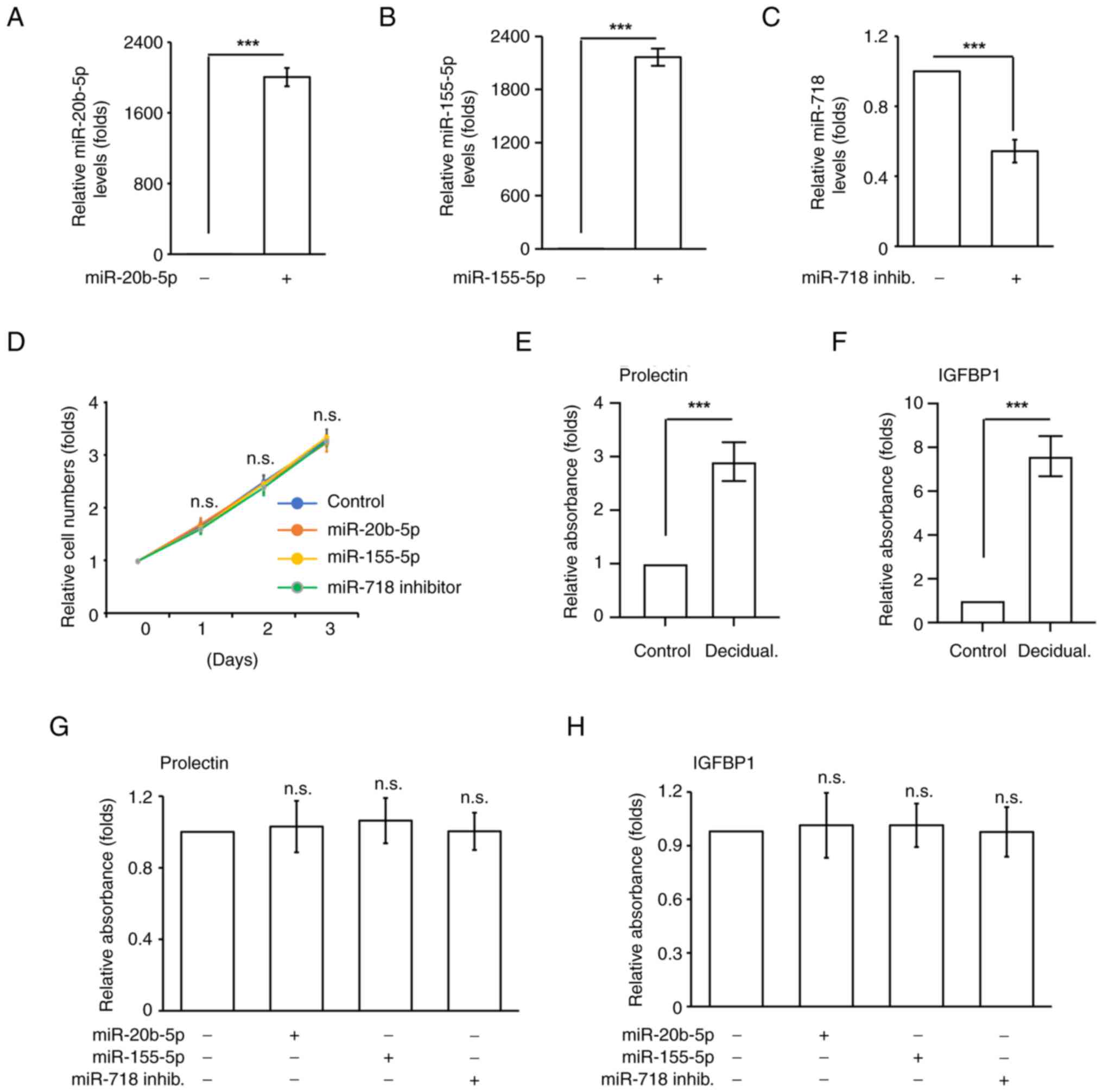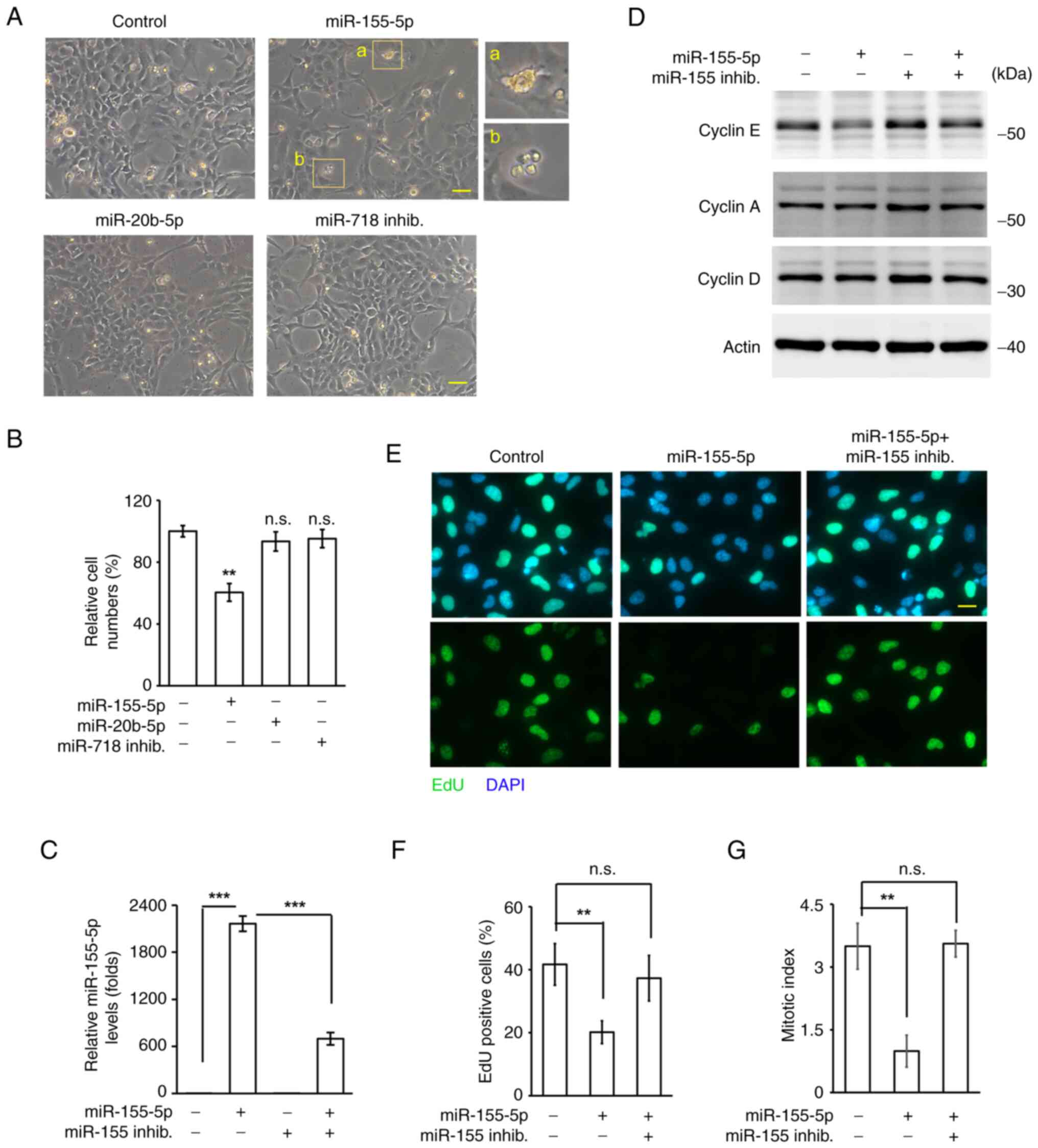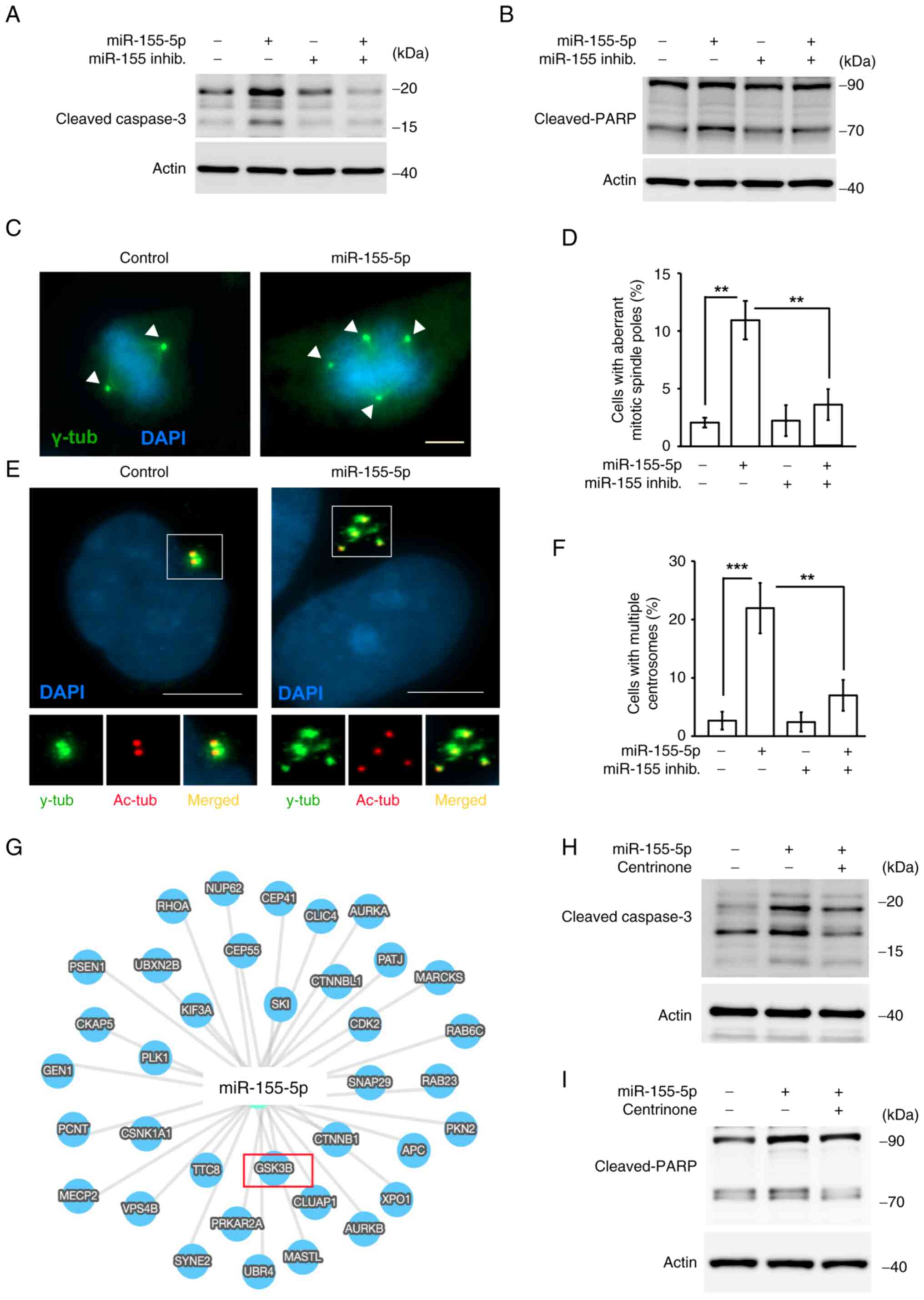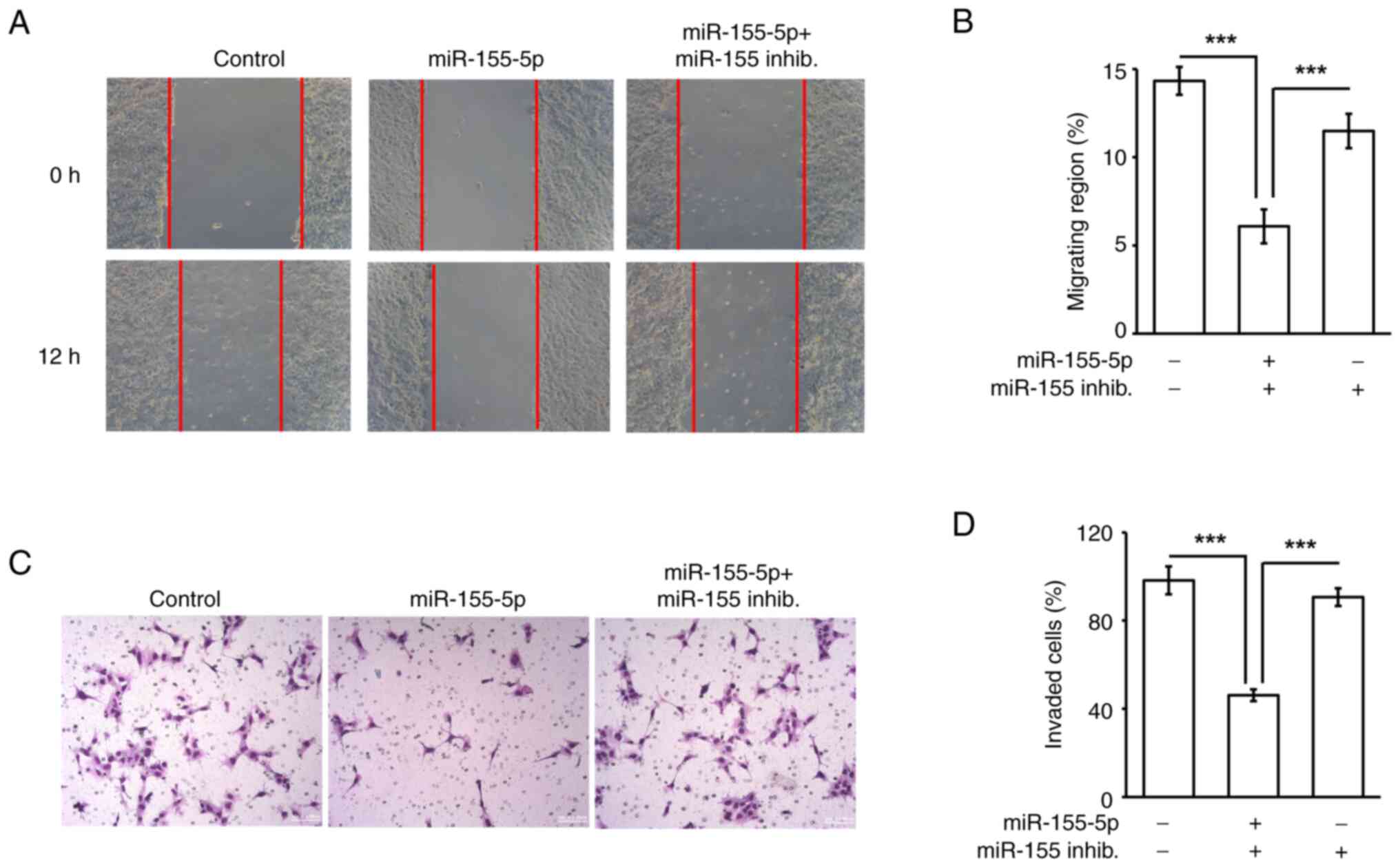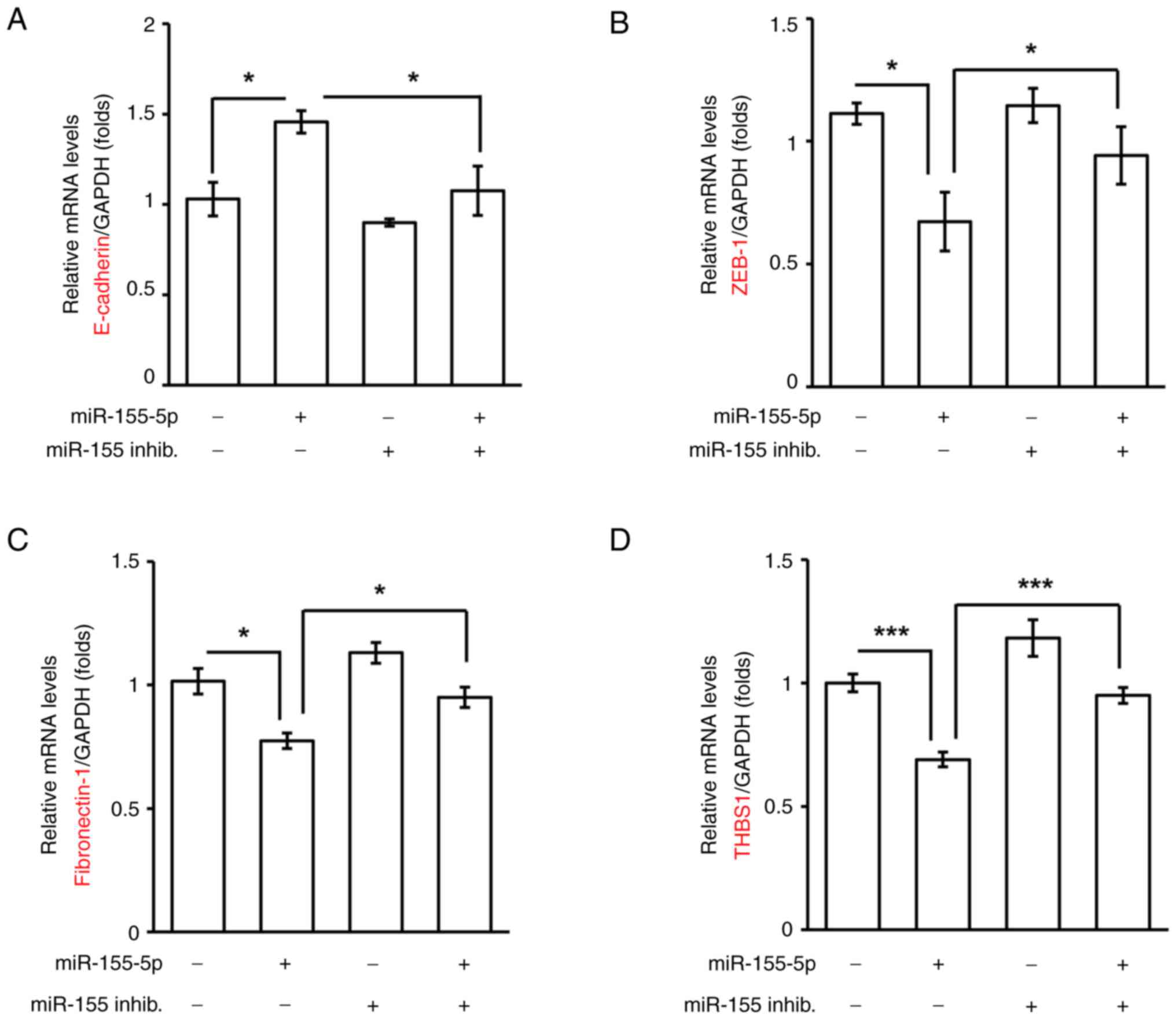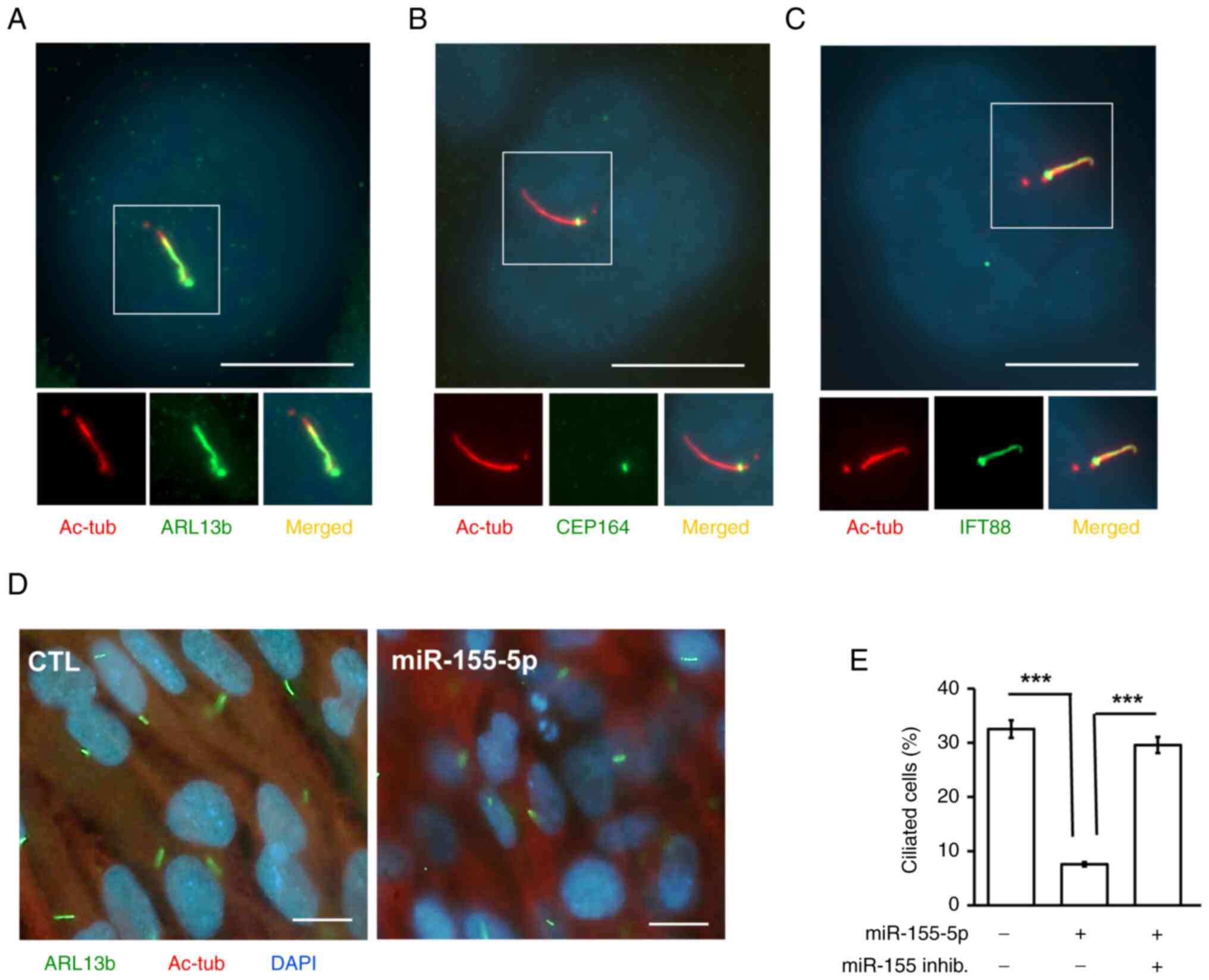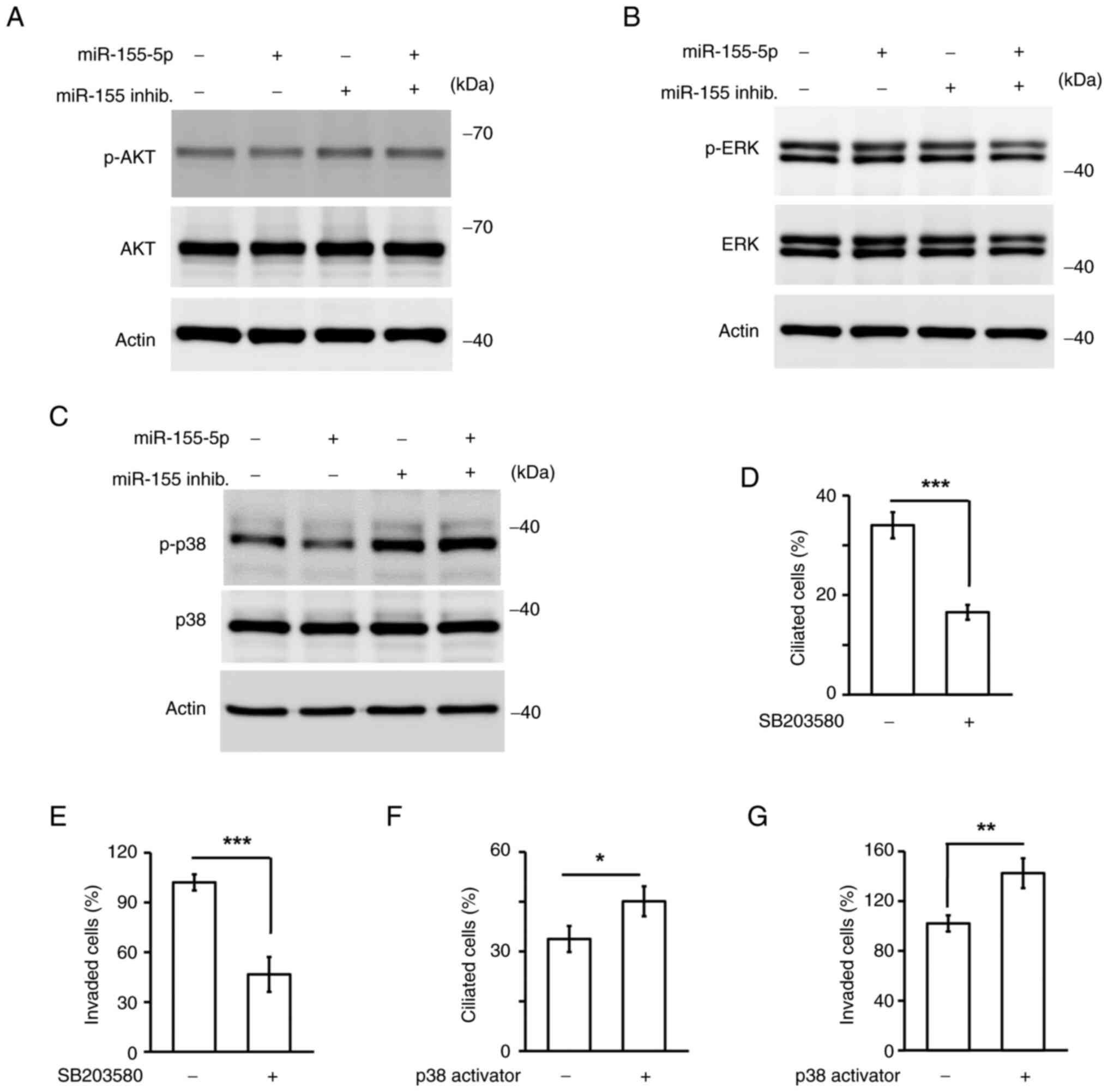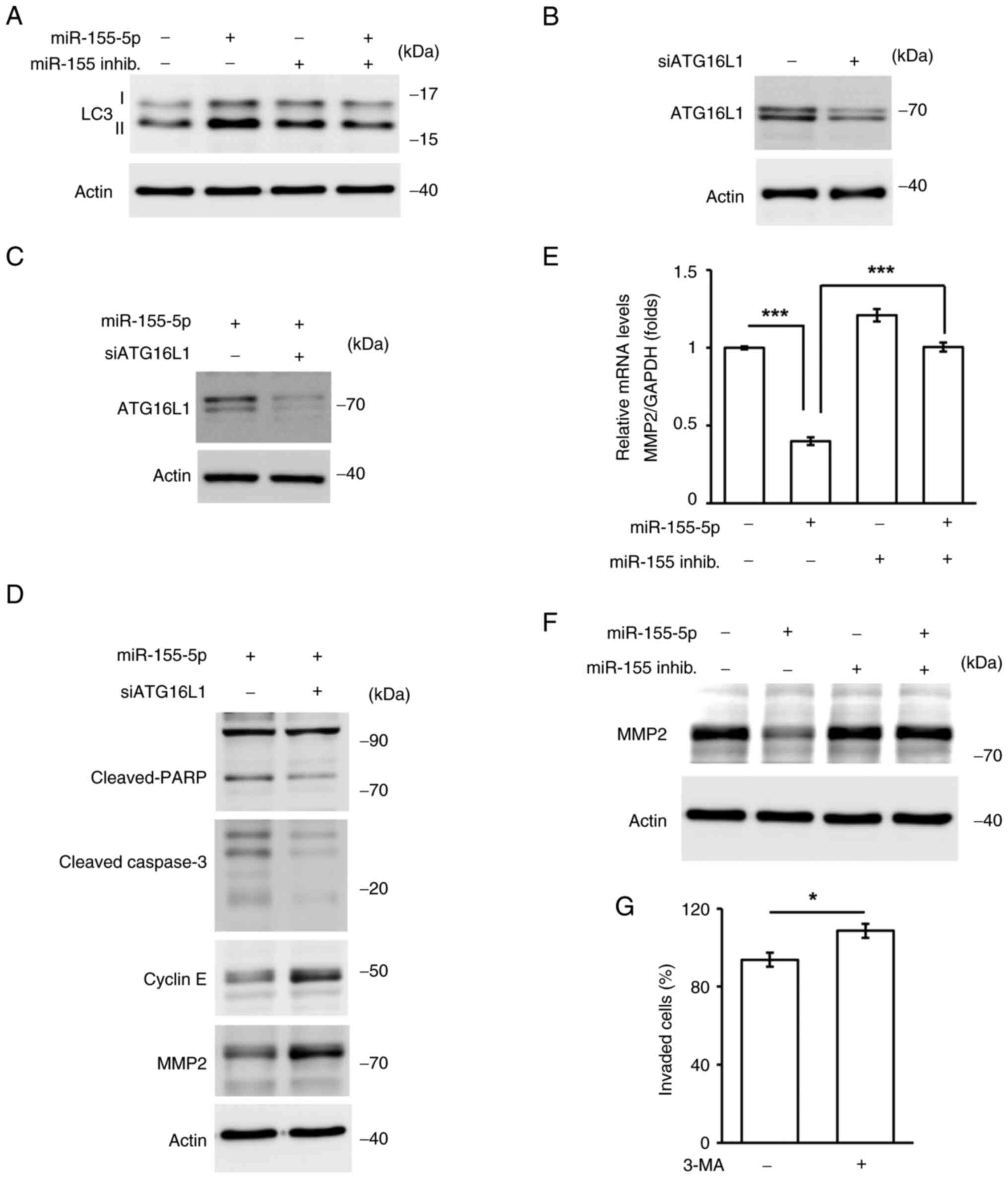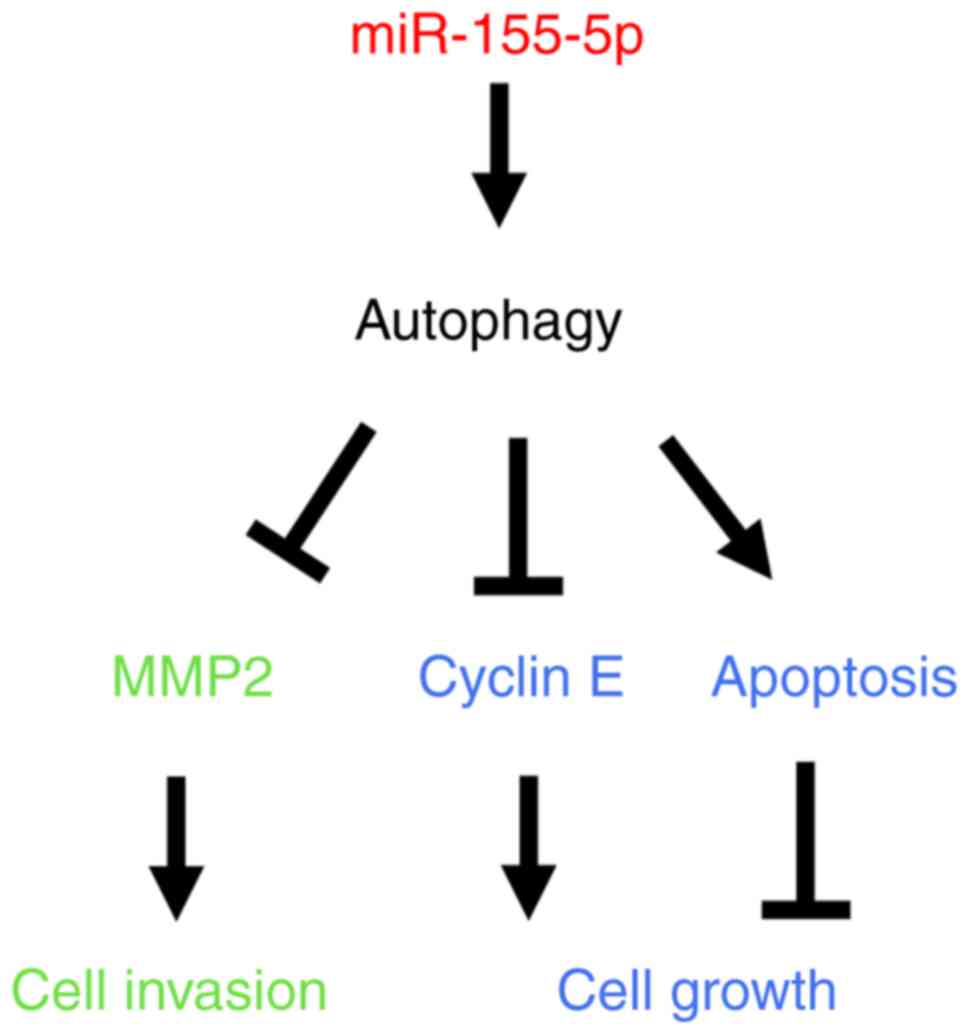|
1
|
Bashiri A, Halper KI and Orvieto R:
Recurrent implantation failure-update overview on etiology,
diagnosis, treatment and future directions. Reprod Biol Endocrinol.
16:1212018. View Article : Google Scholar : PubMed/NCBI
|
|
2
|
Ford HB and Schust DJ: Recurrent pregnancy
loss: Etiology, diagnosis, and therapy. Rev Obstet Gynecol.
2:76–83. 2009.PubMed/NCBI
|
|
3
|
Rai R and Regan L: Recurrent miscarriage.
Lancet. 368:601–611. 2006. View Article : Google Scholar : PubMed/NCBI
|
|
4
|
You Y, Stelzl P, Joseph DN, Aldo PB,
Maxwell AJ, Dekel N, Liao A, Whirledge S and Mor G: TNF-α regulated
endometrial stroma secretome promotes trophoblast invasion. Front
Immunol. 12:7374012021. View Article : Google Scholar : PubMed/NCBI
|
|
5
|
Zhang S, Lin H, Kong S, Wang S, Wang H,
Wang H and Armant DR: Physiological and molecular determinants of
embryo implantation. Mol Aspects Med. 34:939–980. 2013. View Article : Google Scholar : PubMed/NCBI
|
|
6
|
Pan-Castillo B, Gazze SA, Thomas S, Lucas
C, Margarit L, Gonzalez D, Francis LW and Conlan RS: Morphophysical
dynamics of human endometrial cells during decidualization.
Nanomedicine. 14:2235–2245. 2018. View Article : Google Scholar : PubMed/NCBI
|
|
7
|
Vento-Tormo R, Efremova M, Botting RA,
Turco MY, Vento-Tormo M, Meyer KB, Park JE, Stephenson E, Polański
K, Goncalves A, et al: Single-cell reconstruction of the early
maternal-fetal interface in humans. Nature. 563:347–353. 2018.
View Article : Google Scholar : PubMed/NCBI
|
|
8
|
Carter AM, Enders AC and Pijnenborg R: The
role of invasive trophoblast in implantation and placentation of
primates. Philos Trans R Soc Lond B Biol Sci. 370:201400702015.
View Article : Google Scholar : PubMed/NCBI
|
|
9
|
Meakin C, Barrett ES and Aleksunes LM:
Extravillous trophoblast migration and invasion: Impact of
environmental chemicals and pharmaceuticals. Reprod Toxicol.
107:60–68. 2022. View Article : Google Scholar : PubMed/NCBI
|
|
10
|
Ambros V: The functions of animal
microRNAs. Nature. 431:350–355. 2004. View Article : Google Scholar : PubMed/NCBI
|
|
11
|
Jouravleva K, Golovenko D, Demo G, Dutcher
RC, Hall TMT, Zamore PD and Korostelev AA: Structural basis of
microRNA biogenesis by Dicer-1 and its partner protein Loqs-PB. Mol
Cell. 82:4049–4063.e6. 2022. View Article : Google Scholar : PubMed/NCBI
|
|
12
|
Basavarajappa D, Uebbing S, Kreiss M,
Lukic A, Suess B, Steinhilber D, Samuelsson B and Rådmark O: Dicer
up-regulation by inhibition of specific proteolysis in
differentiating monocytic cells. Proc Natl Acad Sci USA.
117:8573–8583. 2020. View Article : Google Scholar : PubMed/NCBI
|
|
13
|
Muys BR, Sousa JF, Plaça JR, de Araújo LF,
Sarshad AA, Anastasakis DG, Wang X, Li XL, de Molfetta GA, Ramão A,
et al: miR-450a acts as a tumor suppressor in ovarian cancer by
regulating energy metabolism. Cancer Res. 79:3294–3305. 2019.
View Article : Google Scholar : PubMed/NCBI
|
|
14
|
Singh R, Yadav V, Kumar S and Saini N:
MicroRNA-195 inhibits proliferation, invasion and metastasis in
breast cancer cells by targeting FASN, HMGCR, ACACA and CYP27B1.
Sci Rep. 5:174542015. View Article : Google Scholar : PubMed/NCBI
|
|
15
|
Sun Z, Shi K, Yang S, Liu J, Zhou Q, Wang
G, Song J, Li Z, Zhang Z and Yuan W: Effect of exosomal miRNA on
cancer biology and clinical applications. Mol Cancer. 17:1472018.
View Article : Google Scholar : PubMed/NCBI
|
|
16
|
Skalis G, Katsi V, Miliou A, Georgiopoulos
G, Papazachou O, Vamvakou G, Nihoyannopoulos P, Tousoulis D and
Makris T: MicroRNAs in preeclampsia. Microrna. 8:28–35. 2019.
View Article : Google Scholar : PubMed/NCBI
|
|
17
|
Zhang H, He Y, Wang JX, Chen MH, Xu JJ,
Jiang MH, Feng YL and Gu YF: miR-30-5p-mediated ferroptosis of
trophoblasts is implicated in the pathogenesis of preeclampsia.
Redox Biol. 29:1014022020. View Article : Google Scholar : PubMed/NCBI
|
|
18
|
Wang CY, Tsai PY, Chen TY, Tsai HL, Kuo PL
and Su MT: Elevated miR-200a and miR-141 inhibit endocrine
gland-derived vascular endothelial growth factor expression and
ciliogenesis in preeclampsia. J Physiol. 597:3069–3083. 2019.
View Article : Google Scholar : PubMed/NCBI
|
|
19
|
Chen CH, Lu F, Yang WJ, Yang PE, Chen WM,
Kang ST, Huang YS, Kao YC, Feng CT, Chang PC, et al: A novel
platform for discovery of differentially expressed microRNAs in
patients with repeated implantation failure. Fertil Steril.
116:181–188. 2021. View Article : Google Scholar : PubMed/NCBI
|
|
20
|
Lai PY, Wang CY, Chen WY, Kao YH, Tsai HM,
Tachibana T, Chang WC and Chung BC: Steroidogenic factor 1 (NR5A1)
resides in centrosomes and maintains genomic stability by
controlling centrosome homeostasis. Cell Death Differ.
18:1836–1844. 2011. View Article : Google Scholar : PubMed/NCBI
|
|
21
|
Chen TY, Lien WC, Cheng HL, Kuan TS, Sheu
SY and Wang CY: Chloroquine inhibits human retina pigmented
epithelial cell growth and microtubule nucleation by downregulating
p150glued. J Cell Physiol. 234:10445–10457. 2019.
View Article : Google Scholar : PubMed/NCBI
|
|
22
|
Lin RC, Chao YY, Lien WC, Chang HC, Tsai
SW and Wang CY: Polo-like kinase 1 selective inhibitor BI2536
(dihydropteridinone) disrupts centrosome homeostasis via ATM-ERK
cascade in adrenocortical carcinoma. Oncol Rep. 50:1672023.
View Article : Google Scholar : PubMed/NCBI
|
|
23
|
Ferguson RL and Maller JL: Centrosomal
localization of cyclin E-Cdk2 is required for initiation of DNA
synthesis. Curr Biol. 20:856–860. 2010. View Article : Google Scholar : PubMed/NCBI
|
|
24
|
Chen TY, Lin TC, Kuo PL, Chen ZR, Cheng
HL, Chao YY, Syu JS, Lu FI and Wang CY: Septin 7 is a centrosomal
protein that ensures S phase entry and microtubule nucleation by
maintaining the abundance of p150glued. J Cell Physiol.
236:2706–2724. 2021. View Article : Google Scholar : PubMed/NCBI
|
|
25
|
Chao YY, Huang BM, Peng IC, Lee PR, Lai
YS, Chiu WT, Lin YS, Lin SC, Chang JH, Chen PS, et al: ATM- and
ATR-induced primary ciliogenesis promotes cisplatin resistance in
pancreatic ductal adenocarcinoma. J Cell Physiol. 237:4487–4503.
2022. View Article : Google Scholar : PubMed/NCBI
|
|
26
|
Hildebrandt F, Benzing T and Katsanis N:
Ciliopathies. N Engl J Med. 364:1533–1543. 2011. View Article : Google Scholar : PubMed/NCBI
|
|
27
|
Yamamoto Y and Mizushima N: Autophagy and
ciliogenesis. JMA J. 4:207–215. 2021. View Article : Google Scholar : PubMed/NCBI
|
|
28
|
Truong ME, Bilekova S, Choksi SP, Li W,
Bugaj LJ, Xu K and Reiter JF: Vertebrate cells differentially
interpret ciliary and extraciliary cAMP. Cell. 184:2911–2926.e18.
2021. View Article : Google Scholar : PubMed/NCBI
|
|
29
|
Tsai YC, Kuo TN, Chao YY, Lee PR, Lin RC,
Xiao XY, Huang BM and Wang CY: PDGF-AA activates AKT and ERK
signaling for testicular interstitial Leydig cell growth via
primary cilia. J Cell Biochem. 124:89–102. 2023. View Article : Google Scholar : PubMed/NCBI
|
|
30
|
Wang CY, Tsai HL, Syu JS, Chen TY and Su
MT: Primary cilium-regulated EG-VEGF signaling facilitates
trophoblast invasion. J Cell Physiol. 232:1467–1477. 2017.
View Article : Google Scholar : PubMed/NCBI
|
|
31
|
Gu X, Liu H, Luo W, Wang X, Wang H and Li
L: Di-2-ethylhexyl phthalate-induced miR-155-5p promoted lipid
metabolism via inhibiting cAMP/PKA signaling pathway in human
trophoblastic HTR-8/Svneo cells. Reprod Toxicol. 114:22–31. 2022.
View Article : Google Scholar : PubMed/NCBI
|
|
32
|
Graham CH, Hawley TS, Hawley RG,
MacDougall JR, Kerbel RS, Khoo N and Lala PK: Establishment and
characterization of first trimester human trophoblast cells with
extended lifespan. Exp Cell Res. 206:204–211. 1993. View Article : Google Scholar : PubMed/NCBI
|
|
33
|
Abou-Kheir W, Barrak J, Hadadeh O and
Daoud G: HTR-8/SVneo cell line contains a mixed population of
cells. Placenta. 50:1–7. 2017. View Article : Google Scholar : PubMed/NCBI
|
|
34
|
Tan HX, Yang SL, Li MQ and Wang HY:
Autophagy suppression of trophoblast cells induces pregnancy loss
by activating decidual NK cytotoxicity and inhibiting trophoblast
invasion. Cell Commun Signal. 18:732020. View Article : Google Scholar : PubMed/NCBI
|
|
35
|
Livak KJ and Schmittgen TD: Analysis of
relative gene expression data using real-time quantitative PCR and
the 2(−Delta Delta C(T)) method. Methods. 25:402–408. 2001.
View Article : Google Scholar : PubMed/NCBI
|
|
36
|
Orth JD, Loewer A, Lahav G and Mitchison
TJ: Prolonged mitotic arrest triggers partial activation of
apoptosis, resulting in DNA damage and p53 induction. Mol Biol
Cell. 23:567–576. 2012. View Article : Google Scholar : PubMed/NCBI
|
|
37
|
Wang CY, Kao YH, Lai PY, Chen WY and Chung
BC: Steroidogenic factor 1 (NR5A1) maintains centrosome homeostasis
in steroidogenic cells by restricting centrosomal DNA-dependent
protein kinase activation. Mol Cell Biol. 33:476–484. 2013.
View Article : Google Scholar : PubMed/NCBI
|
|
38
|
Bahmanyar S, Guiney EL, Hatch EM, Nelson
WJ and Barth AIM: Formation of extra centrosomal structures is
dependent on beta-catenin. J Cell Sci. 123:3125–3135. 2010.
View Article : Google Scholar : PubMed/NCBI
|
|
39
|
Wang CY, Lai PY, Chen TY and Chung BC:
NR5A1 prevents centriole splitting by inhibiting centrosomal DNA-PK
activation and β-catenin accumulation. Cell Commun Signal.
12:552014. View Article : Google Scholar : PubMed/NCBI
|
|
40
|
Illsley NP, DaSilva-Arnold SC, Zamudio S,
Alvarez M and Al-Khan A: Trophoblast invasion: Lessons from
abnormally invasive placenta (placenta accreta). Placenta.
102:61–66. 2020. View Article : Google Scholar : PubMed/NCBI
|
|
41
|
Ming Z, Vining B, Bagheri-Fam S and Harley
V: SOX9 in organogenesis: Shared and unique transcriptional
functions. Cell Mol Life Sci. 79:5222022. View Article : Google Scholar : PubMed/NCBI
|
|
42
|
Edelman HE, McClymont SA, Tucker TR,
Pineda S, Beer RL, McCallion AS and Parsons MJ: SOX9 modulates
cancer biomarker and cilia genes in pancreatic cancer. Hum Mol
Genet. 30:485–499. 2021. View Article : Google Scholar : PubMed/NCBI
|
|
43
|
Xu WP, Cui YL, Chen LL, Ding K, Ding CH,
Chen F, Zhang X and Xie WF: Deletion of Sox9 in the liver leads to
hepatic cystogenesis in mice by transcriptionally downregulating
Sec63. J Pathol. 254:57–69. 2021.PubMed/NCBI
|
|
44
|
Schepers GE, Teasdale RD and Koopman P:
Twenty pairs of sox: Extent, homology, and nomenclature of the
mouse and human sox transcription factor gene families. Dev Cell.
3:167–170. 2002. View Article : Google Scholar : PubMed/NCBI
|
|
45
|
Tew SR and Hardingham TE: Regulation of
SOX9 mRNA in human articular chondrocytes involving p38 MAPK
activation and mRNA stabilization. J Biol Chem. 281:39471–39479.
2006. View Article : Google Scholar : PubMed/NCBI
|
|
46
|
Bao Z, Zhang N, Niu W, Mu M, Zhang X, Hu S
and Niu C: Exosomal miR-155-5p derived from glioma stem-like cells
promotes mesenchymal transition via targeting ACOT12. Cell Death
Dis. 13:7252022. View Article : Google Scholar : PubMed/NCBI
|
|
47
|
Chen G, Wang D, Zhao X, Cao J, Zhao Y,
Wang F, Bai J, Luo D and Li L: miR-155-5p modulates malignant
behaviors of hepatocellular carcinoma by directly targeting CTHRC1
and indirectly regulating GSK-3β-involved Wnt/β-catenin signaling.
Cancer Cell Int. 17:1182017. View Article : Google Scholar : PubMed/NCBI
|
|
48
|
Yang LW, Wu XJ, Liang Y, Ye GQ, Che YC, Wu
XZ, Zhu XJ, Fan HL, Fan XP and Xu JF: miR-155 increases stemness
and decitabine resistance in triple-negative breast cancer cells by
inhibiting TSPAN5. Mol Carcinog. 59:447–461. 2020. View Article : Google Scholar : PubMed/NCBI
|
|
49
|
Wu HY, Liu K and Zhang JL:
LINC00240/miR-155 axis regulates function of trophoblasts and M2
macrophage polarization via modulating oxidative stress-induced
pyroptosis in preeclampsia. Mol Med. 28:1192022. View Article : Google Scholar : PubMed/NCBI
|



